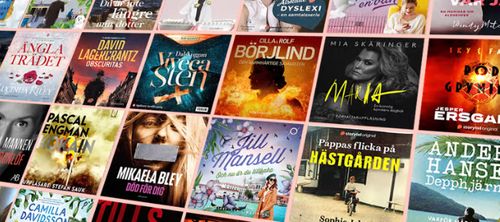What We Need, and Don't Need, Now
The Catholic Thing - En podcast av The Catholic Thing

Kategorier:
By Francis X. Maier. The new autobiography by Pope Francis, Hope , written with the help of Italian journalist Carlo Musso, is a mixed experience. On the one hand, it's filled with revealing personal details; Gospel wisdom on the futility of war and the urgency of mercy and forgiveness; the difference between hope and optimism; and exhortations to trust in God and the future. So far, so good: The intimate personal witness of a pope from the peripheries should have natural appeal. Alas, on the other hand, much of the text is tedious platitude, with familiar nods to climate and the environment, complaints about "rigidity" in the Church and the dangers of populism, and a confessional tone that's meant to be absorbing but ends up feeling awkward and embarrassing for its lack of depth. The book was designed to be released after Francis's death. He moved up its publication to coincide with the Jubilee Year. That was a mistake. Death can throw an enhancing veil over the memory of a man. In life, there's such a thing as TMI: too much information, especially when it's not compelling. Such is the case with Hope. Whatever its long-term value, the book is, regrettably, of little help to faithful American Catholics who face a new and challenging cultural terrain. Consider the following factors, in no particular order, but all of them serious: The Obama and Biden presidencies with their systematic mendacity and appetite for "equity" and social engineering; the application of behavioralist "nudge" techniques to the political environment; the growth of the administrative state; the spread of government-approved "snitch lines" for citizens to report each other for perceived offensive speech; invasive developments in surveillance technology; legacy media polarization; fragmentation in popular sources of information via the Internet, thereby intensifying social conflict; and the rise of the social sciences (especially psychology and sociology) as a kind of alternative clergy. These realities, when combined, offer the foretaste of a "soft totalitarianism" uniquely suited to the American environment. This was a concern among bishops interviewed for my 2024 book True Confessions, but the perception is held far more widely than in Church circles. Secular scholars with no religious affiliation such as Christopher Lasch saw the emerging ingredients of this reality decades ago. And in his collection of essays, Technology and Empire (published nearly 60 years ago), the Canadian (Christian) political philosopher George Parkin Grant observed that "the dynamism of technology has gradually become the dominant purpose" in Western civilization, in effect, its state religion. The result, said Grant, is predictable. The "motive of wonder" in scientific inquiry has become "ever more subsidiary to the motive of power" - with a consequent drive for mastery not merely over nature and the element of chance, but over man himself. The urge to control human nature in the interests of improving it - whatever that might mean in the mind of the "improvers" - "is the chief cause of the development of the modern 'value-free' social sciences." In a world where notions of good and evil are reduced to value judgments and subjective preferences lacking bases in fact, sociology and psychology serve "the function of expanding that knowledge which gives [social] control." They also provide, for those in power, "a large percentage of the preachers who proclaim the dogmas which legitimize" the modern argument for more intrusive social controls. In the end, what results is a minority leadership class with a monopoly of power, and a majority of the led who might "live in affluence but are removed from any directing of the society" and whose purpose is found in an ethos of pleasure and distraction. Writing at the height of the Vietnam War, Grant suggested that the theme of North American life had become "the orgasm at home and napalm abroad." Whether anything fundamental has change...

